Works by famous composers. Austrian composers - the most interesting things in blogs
Contributions of individual nations to development human culture are not evaluated by modern artificially inflated and promoted “stars”, whom everyone manages to forget before they themselves fade into oblivion. Much more valued are geniuses whose names are firmly associated in centuries to come. human perception with art and predetermine its development for a long period. It is difficult to argue with the fact that Italian masters are leading in the field of sculpture and painting, as well as with the fact that very small (now) Austria has become a leader in classical music. There are so many names on the list of Austrian composer geniuses that this fact cannot but amaze. Modern composers have no choice but to silently take off their hat to the Austrian geniuses of bygone times.
Wolfgang Amadeus Mozart
The first to be remembered among those whom musical Austria gave to the world is Wolfgang Amadeus Mozart (1756 - 1791) - one of the three pillars of the Vienna classical school along with Joseph Haydn and Ludwig van Beethoven. His short life swept across the European musical sky like a bright meteor. Mozart's genius in his best works reached incredible heights. His music has been enjoyed by many generations of listeners for more than two centuries, and the level of intelligence and social status do not interfere with this pleasure.
Mozart was an amazingly prolific composer who began composing in early childhood. By the age of 17, he had already written:
- 13 symphonies;
- 4 operas;
- 24 sonatas and many other small works.
And the number of scores at the time of his death seemed incredible. Among his most famous and frequently performed works, one can mention 6 string quartets dedicated to Haydn, the operas “Don Giovanni”, “The Marriage of Figaro”, “Everyone Does This or the School of Lovers”, “The Abduction from the Seraglio”, “ The Magic Flute", symphonies No. 39-41, requiem - last brilliant creation Mozart, which he did not have time to complete, having died suddenly.
Antonio Salieri
Famous contemporary of Mozart - Antonio Salieri (1750 - 1825) achieved popularity at a fairly young age. Yes, him opera "Venice Fair", written in 1772, was enthusiastically received by the public. Therefore, after a couple of years, Salieri received the position of head of the Vienna Court Chapel and Opera House. Next opera - “School of the Jealous”(1778) was also a success. In the same year, Salieri began to study with Gluck, who even entrusted him with writing in his place intended for the Paris Academy opera "Danaids". In total, Salieri has written more than 40 operas.
Salieri's career was incredibly successful, he quickly became popular throughout Europe. Louis XVIII even awarded him the Legion of Honor. In addition to operas, Salieri also wrote symphonies, masses, a requiem, two piano concertos and one organ concerto, cantatas, oratorios and other works.
In addition to his creativity, Salieri was famous for his brilliant teacher, who raised over 60 students, among whom were Beethoven, Liszt, and Schubert. Salieri became the first director of the famous Vienna Conservatory in 1817. Salieri planted the big pig Russian genius A. Pushkin, who unfoundedly accused an innocent Italian of the villainous poisoning of Mozart in his “Little Tragedies”. In the minds of ordinary people, this stigma has firmly attached itself to the musical master worthy of all respect.
Franz Haydn
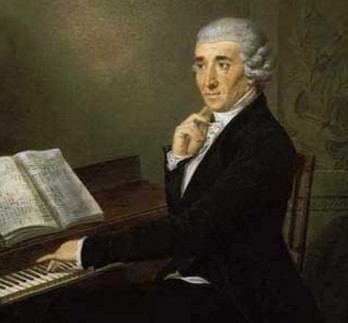 Franz Joseph Haydn(1732 - 1809) left no less musical heritage. On his symphonies and instrumental works Many generations of musicians have grown up.
Franz Joseph Haydn(1732 - 1809) left no less musical heritage. On his symphonies and instrumental works Many generations of musicians have grown up.
He quickly, as if casually, wrote symphonies, of which there were 104, and besides them:
52 piano sonatas;
. 83 quartets, operas;
. 14 mos.
This musical genius wrote optimistic music that lifts your spirits and gives you strength. For many generations of authors, standards musical works became his oratorios "Seasons" and "Creation of the World".
Strauss family
The mention of Vienna instantly brings to mind Viennese waltzes and their “king” - Johann Strauss's son(1825 - 1899) with his incredible musical family(father and brothers). Through their efforts they raised the usual dance tune to the level of classical music.
Johann Strauss son wrote:
168 waltzes;
. 73 quadrilles;
. 117 poles;
. 31 mazurkas;
. 43 marches;
. comic opera;
. 15 operettas and ballets.
But it was the waltzes that made him great. You can endlessly listen to his best things: “On the Beautiful Blue Danube”, “Tales of the Vienna Woods”, “The Life of an Artist” and many others - they are still heard in the world and remain incredibly popular.
Franz Liszt
The best pianist of the 19th century, composer, conductor and sought-after music teacher- Franz Liszt (1811 - 1886) not only masterfully performed other people’s works (he brilliantly arranged everything Beethoven symphonies on the piano), but also left 647 of his own, many of which still sound today and are well known to listeners.
Christoph Gluck
Christoph Willibald Gluck (1714 - 1787) more worked on operas (more than 50), ballets and sideshows. His famous operas are “Orpheus”, “Semiramis”, “Paris and Helen”, “Alcestes”, “Armida”, “Iphigenia in Aupida”, “Iphigenia in Tauris”. Some of Gluck's operas have not survived, others he reworked several times, so the exact number of his operas is unknown.
Franz Schubert
Franz Peter Schubert (1797-1828) one of the first representatives of the romantic movement, wrote many songs for voice and piano, organ and piano music, including 15 operas, 7 symphonies and 6 masses who immortalized his name.
Gustav Mahler
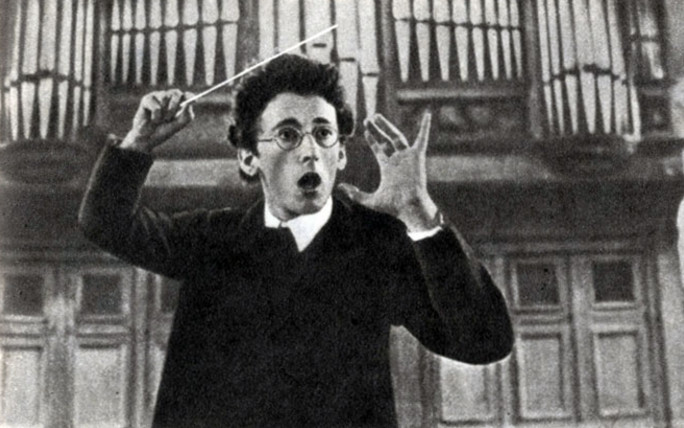 Gustav Mahler (1860-1911) - wonderful symphonic and opera composer, as well as a conductor. During his lifetime, Mahler was better known as a conductor, one of the famous “post-Wagner five”. At the same time, his talent as a composer was appreciated only by a few devoted admirers.
Gustav Mahler (1860-1911) - wonderful symphonic and opera composer, as well as a conductor. During his lifetime, Mahler was better known as a conductor, one of the famous “post-Wagner five”. At the same time, his talent as a composer was appreciated only by a few devoted admirers.
Real recognition of Mahler's music came very late, coming half a century after his death - his descendants recognized him as the most prominent symphonist of the 20th century. He didn’t write that much - mostly symphonies and songs, but they quickly became entrenched in the performing repertoire. Mahler's music is one of the most performed today.
Carl Ditters
August Karl Ditters von Dittersdorf (1739 - 1799) - Austrian violinist and composer. He worked in the direction of classicism and was significantly influenced Italian school. Currently, his most famous works are a pair of concertos for double bass and orchestra and one for viola and orchestra, although during his lifetime he was better known as the author of German singspiels and opera bouffe with Italian text (“The Doctor and the Pharmacist”, “Little Red Riding Hood or neither harm nor benefit"). This author also wrote about 120 symphonies.
Austria has a rich cultural past and present. Its residents honor their traditions and hold many festivals and other events. Austrian classics made a great contribution to the development of human culture. Particularly famous music world of this country. However, there are also very popular names in the field of literature.
Classic writers and poets of the 19th century: list
- Adalbert Stifter.
- Johann Nepomuk Nestroy.
- Carl Emil Franzoz
- Ludwig Anzengruber.
- Leopold von Sacher-Masoch.
- Marie von Ebner-Eschenbach.
- Nikolaus Lenau.
- Peter Rosegger.
- Ferdinand Raymond.
- Franz Grillparzer.
- Ferdinand von Saar.
- Charles Sealsfield.
Features of Austrian culture
Austrian poetry is unique and unusual. It has its own unique language and style, special ways and techniques of conveying the meaning of life.
It was in the 19th century that an internal ideological and moral unity of culture developed in Austria. The Austrian classics of this century achieved extraordinary heights in all fields of art.
It is impossible to understand a culture like this amazing country, if you read or listen to the works of these creators superficially and indifferently. It is very important to understand their essence, their deep meaning. Only then will creations reveal their amazing side.
If you “break through” the dry and rough surface of Franz Grillparzer’s poetry, you can get inside his world.
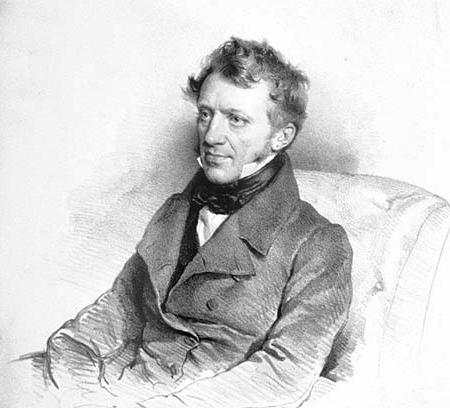
If you overcome the vastness of Adalbert Stifter’s descriptions, then each word will be perceived as indescribably expressive and reverently subtle. Deep meaning laid down in the poetry of Georg Trakl. If you overcome the external incoherence of his lines, then this poet will become extremely interesting to many.
Austrian classics seem to deliberately surround their world protective layer from the bad taste, vulgarity and vulgarity common in the 19th century (and not only).
A true creator will not abandon his work to the mercy of fate. It is easier for him to be misunderstood today. Let it happen later. But he doesn’t want to be misunderstood at all.
19th century Austrian literature
The 19th century for Austria is a “bourgeois” era. Especially in the second half of this century there is a split in cultural life countries. Entertainment becomes the main focus. It’s no wonder why Viennese operetta is conquering the whole world. In the second half of the 19th century, the concept of "Viennese" folk theater"loses its former meaning. It is quite obvious that in such conditions literature arose on behalf of the people. It was literature in which German and Slavic cultural elements were closely intertwined.
The Slavic theme greatly worried the writers of Austria. Historical tragedy “The Happiness and Death of King Ottokar” - outstanding work of its time. It was written by the Austrian writer Franz Grillparzer. He also owns the wonderful drama “Libusha”. In the works of Adalbert Stifter Slavic theme occupies a significant place.
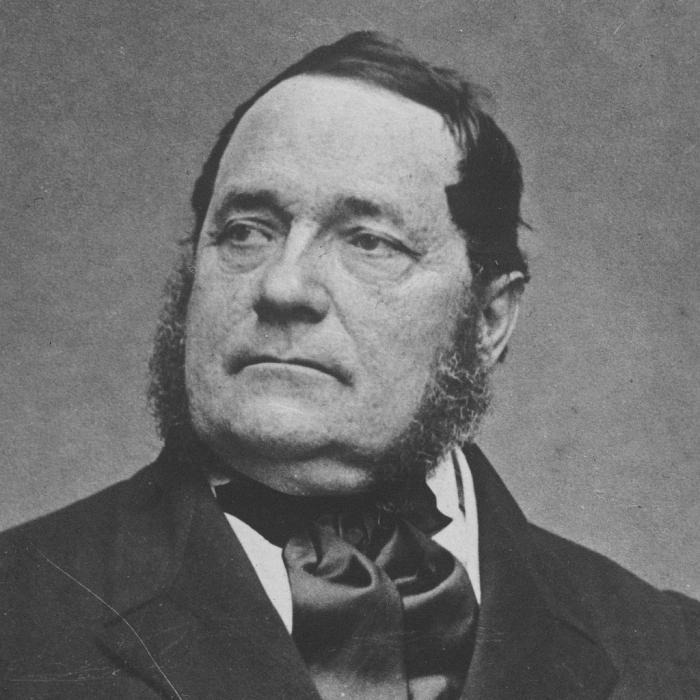 Maria von Ebner-Eschenbach is another outstanding writer. She had a direct relationship with the Slavs: she came from the aristocratic Dubsky family.
Maria von Ebner-Eschenbach is another outstanding writer. She had a direct relationship with the Slavs: she came from the aristocratic Dubsky family.
The great writers of Austria, in such a difficult time, dreamed of friendship and peace between nations. All this was directly reflected in their excellent works.
Brief information about Austrian poets
Austrian poets made a great contribution to the development of the culture of their country. Their wonderful works are loved by those readers who understand and appreciate their work.
(1887-1914) lived, as we see, very little. Only 27 years old. He was born in Salzburg on February 3, 1887. He began writing poetry from his high school years. He owns the following plays: “Day of Obedience”, “Fata Morgana”, “Mary Magdalene”, “Dreamland”. From 1910 to 1911 he served in the army. Since 1912 he has been a member of the literary community "Pan". A year later, his first collection of poems was published. In 1914 he was drafted into the army. He saw with his own eyes the horror of war. His psyche could not stand it, and he committed suicide.
René Carl Maria Rilke lived from 1875 to 1926. Since 1894, his first stories have been published, as well as the collection “Life and Songs”. 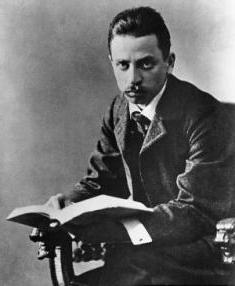
Two years later, his second collection, “Victims of Laram,” was published. In 1897 he visited Venice and then Berlin, where he settled. Here he creates three more poetry collections. The writer Lou Andreas-Salomé had a great influence on him. In 1899 he came to Russia. Here he met Leonid Pasternak, Ilya Repin, Leo Tolstoy, Boris Pasternak and many other artists.
In 1901 he moved to Paris. Until his death, he corresponded with Marina Tsvetaeva, whom he never met. Died in 1926.
Stefan Zweig
The writer Stefan Zweig (1881-1942) is an outstanding Austrian classicist. Born in Vienna. In 1905 he goes to Paris. Since 1906 he has been traveling through Italy, Spain, India, the USA, and Cuba. In 1917-1918 he lived in Switzerland. After the war he settled near Salzburg. In 1901, his first book, “Silver Strings,” was published. He was friends with such outstanding cultural figures as Rilke, Rolland, Maserel, Rodin, Mann, Hesse, Wells and many others. During the war years he wrote an essay about Rolland - “The Conscience of Europe”. The author became widely known thanks to his short stories “Amok”, “Confusion of Feelings”, “Chess Novella”. Zweig often created interesting biographies and masterfully worked with historical documents. In 1935 he wrote the book “The Triumph and Tragedy of Erasmus of Rotterdam.” On February 22, 1942, he and his wife took a large dose of sleeping pills and died. He categorically did not accept this world.
Composers of Austria
Austrian composers- classics evoke in many people associations with entire movements of art. The list of the most talented composers and musicians in Austria is staggering in its scale. This:
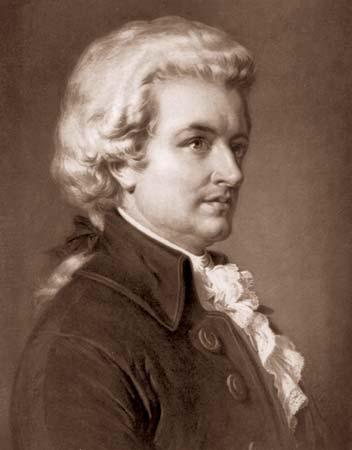
Franz Joseph Haydn
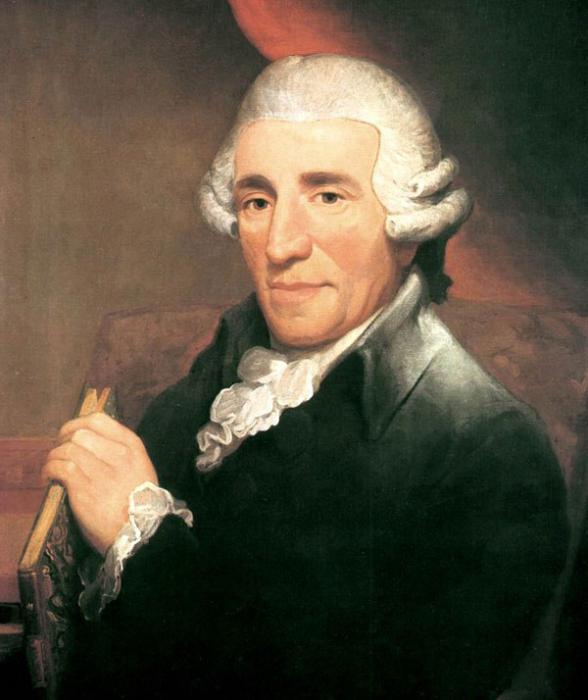
Austrian composer, the brightest representative schools. They were subject to him different genres. He wrote 104 symphonies, 83 quartets, 52 piano sonatas, as well as his legacy - oratorios, operas and masses. He was born on March 31, 1732 in Rohrau. Early on he mastered playing several instruments at once. In the period 1759-1761. served with Count Morcin, and then took the position of vice-bandmaster at the court of Prince Esterházy. At the beginning of the service, he composed mainly instrumental music. This is a triptych of symphonies “Morning”, “Noon”, “Evening and Storm”. In the late 1660s - early 1670s he wrote serious and dramatic symphonies. Particularly noteworthy are “Complaint”, “Mourning”, “Suffering”, “Farewell”. During this period he wrote eighteen string quartets. Haydn Joseph also wrote operas. The most famous are “The Apothecary”, “Deceived Infidelity”, “Moonlight World”, “Loyalty Rewarded”, “Roland the Paladin”, “Armida”. In 1787 he wrote six quartets. Researchers note that they were created under the influence of the concerts of Wolfgang Amadeus Mozart. After the death of Prince Esterhazy (1790), Haydn received creative freedom and the opportunity to travel to other cities. In London he created his last twelve symphonies. Died in Vienna on March 31, 1809.
Conclusion
Thus, the Austrian classics made a great contribution to the development of human culture. Austrian poetry is distinguished by its unusual language and style. In order to understand the culture of this amazing country, you need to read or listen to the works of art of its classics thoughtfully and carefully, trying to grasp their essence. And creations will open from an unexpected side.
Alexey is far from being an orthodox of the classics; he flutters easily and in modern music, both in jazz and in the salon-chamber repertoire. At the same time, he can talk about any facts from the history of music as if he himself were present. Well, or, at least, peeking from behind the curtain. He calls himself " good man broad profile."
http://www.silver.ru/leading/skanavi_aleksey/
Radio program:
Rendezvous with an amateur on Radio Orpheus
Alexey Skanavi visiting Vladimir Molchanov
Alexey Skanavi: “I consider my main mission to be to teach people who don’t yet know how to listen to music. Because classical music, in addition to the fact that this is art, it is also culture in its concentrated expression, an indicator high quality life and an inexhaustible source of pleasure. But it is possible to receive this pleasure only if you understand what it is..."
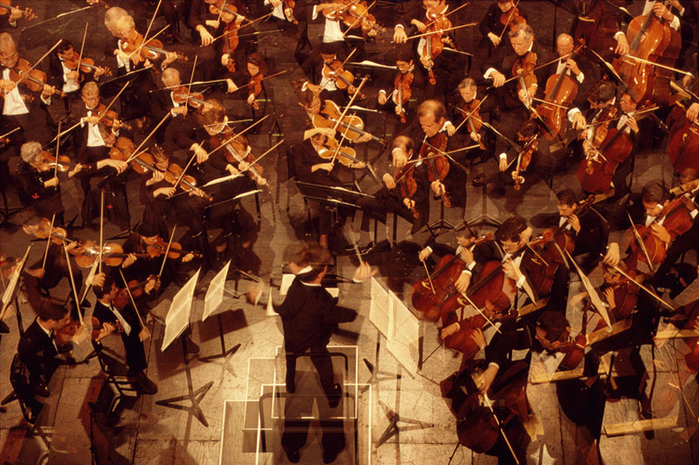
LET'S GO TO THE CONCERT
Standard symphony concert consists of an overture and a concerto for some instrument (most often piano or violin) with an orchestra in the first part and the symphony itself in the second. Most often they perform either overtures from famous theatrical works, or having their own plot, which allows even completely unprepared listeners to perceive music - at an extra-musical semantic level. Instrumental concerts Composers also write with the mass audience in mind. With a symphony everything seems much more complicated, but this is only at first glance.
Music and Austria are inseparable concepts
Austria has always been a renowned world music center. Every year in every region of the country music festivals, which attract famous musicians from all over the world. But the “most musical” city in Austria is its capital, Vienna. As Stefan Zweig so aptly put it, Vienna is “a magnificently orchestrated city.”
In Austria, music is given great attention. Music is a compulsory subject school curriculum. Love for her is brought up in children with early childhood. Christian traditions also played a role here - Austrians attend church with their families every week, thereby introducing the younger generation to church hymns and organ music. The history of choral singing in Austria goes back many centuries. At the end of the 15th century, the Vienna Boys' Choir was founded, which still exists today. In every small town you are sure to find some kind of singing group or chapel.
The Austrians reverently honor and preserve their musical culture and history. Since there are countless famous Austrian musicians and composers, several anniversaries can be celebrated per year. For example, 1999 was the year of Johann Strauss, famous for his beautiful waltzes.
The theater season for Vienna is a special event. Concert halls And former palaces the nobility are packed to capacity with art connoisseurs.
Although the dawn of opera came in turn of XIX-XX centuries, opera traditions in Vienna are still strong, and the Austrian capital along with New York, London and Milan remains the center of this art form. Viennese opera house stands out from the background of other buildings with its pomp and pomp.The musical season in Vienna reaches its climax in February, when balls and masquerades are held. The most famous ball is the Vienna Ball (
Opernball ), held annually at the Vienna Opera House. The audience here is only from high society, and the ticket price is appropriate - at least 50 thousand dollars.Vienna Ball at the Vienna Opera House
The Austrians revere their great countrymen in every possible way. On one of the most beautiful Viennese streets, Kärtnerstrasse, the Walk of Fame of great musicians and composers was opened. More than seventy granite and marble slabs with surnames were installed in the pavement prominent figures musical art.
Prominent Austrian composers
Bruckner Anton(1824 - 1896) - composer and organist, famous for sacred music, 9 symphonies and music for choir and orchestra. C his most famous work is the mass " Te Deum."
Haydn Franz Joseph (1732 - 1809) - great founder classical instrumental music, representative of the Viennese classical school. Haydn left a huge creative heritage: more than 100 symphonies, more than 30 operas, oratorios, 14 masses, over 30 concerts for musical instruments. The pinnacle of his creativity is 12 “ London Symphonies"(written in England). Haydn acquired the honorary title of “father of the symphony.”
Kreisler Fritz(1875 - 1962) - virtuoso violinist and composer. Rachmaninov called Kreisler “the best violinist in the world.” His compositions include operetta, works for violin, and numerous plays. Nowadays, “Chinese Tambourine”, “Pangs of Love”, “Wonderful Rosemary”, “Joy of Love”, etc. are often performed as encores.
Mahler Gustav(1860 - 1911) - composer and talented conductor, author of 10 symphonies. His “Epic Song of the Earth” (based on Chinese poetry) is widely known VIII century), "Songs of the Wandering Apprentice", a cycle of songs based on folk motifs"The Boy's Magic Horn" and others. Especially strong influence Mahler influenced Shostakovich.
Vein. Monument to Mozart.
Mozart Wolfgang Amadeus (1756 - 1791) - one of the greatest composers, bandmaster, virtuoso violinist, organist. Representative of the Vienna Classical School. Possessed perfect musical ear and unsurpassed memory. His masterpieces include symphonies, operas (The Marriage of Figaro, Don Giovanni, The Magic Flute), cantatas, oratorios, masses, including Requiem, the creation of which is shrouded in mystery. Mozart’s works are distinguished by poetry and subtle grace. His melodies are very popular among our contemporaries: “Closer to the Dream”, “Little Night Serenade”, “Melody of Rain”, “Elvira Madigan”, “Turkish March”, “Melody of Angels”, etc.
SchubertFranz(1797 - 1828) – first great composer- romantic, author of about 600 songs and ballads (words by Heine, Schiller, Goethe, Shakespeare), 400 dances, including waltzes, 9 symphonies, sonatas, as well as piano music. Schubert’s works have not yet lost their popularity, for example, “Serenade "from the collection "Swan Song", as well as the songs "Shelter", "By the Sea", "Trout", aria " Ave Maria " When Schubert was still young, Beethoven declared prophetically: “Truly, the spark of God lives in this Schubert! He will make the whole world talk about himself!”
The Strauss musical dynasty
Did you know that the Strauss family had not one, but four musicians!
Strauss Johann(1804 - 1849) - father, founder of a musical dynasty. Composer, violinist and conductor. C With his orchestra, Strauss successfully toured Europe. He gave the world more than 250 compositions: quadrilles, marches, waltzes (which make up two-thirds of Strauss's works). The waltzes “Lorelei's Lament on the Rhine” and “Suspension Bridges” enjoyed particular success. But the most famous composition of Father Strauss is the Radetzky March.
Strauss Johann(1825 - 1899) - eldest son. Recognized as the "king of the waltz", composer and conductor, o He was an innovator in rhythm and orchestration. Already at the age of 19, Johann made his conducting debut. His melodic talent is reflected in 496 works: waltzes, polkas, quadrilles, marches, mazurkas. The famous Strauss waltzes “On the Beautiful Blue Danube”, “The Joys of Life”, “Tales of the Vienna Woods”, “Farewell to St. Petersburg”, “Voices of Spring”, “Roses from the South”, as well as operettas “ Bat», « Gypsy Baron", "Carnival in Rome", etc. Like his father, Strauss traveled all over Europe with his orchestra. He also performed in New York. Tchaikovsky admired Strauss's works.
Strauss Joseph(1827 - 1870) - younger brother of Johann Strauss. A talented violinist and conductor. Author of the “Persian March”, the polkas “Cuckoo”, “Pizzicato”, as well as the delightful waltzes “Madness”, “Swallows of the Austrian Villages”, “My Life is Joy and Love”, “Madness”, “Watercolors”, etc.
Strauss Eduard(1835 - 1916) - third brother in the Strauss family. Like his brothers, he played the violin, conducted, and composed waltzes. He wrote about 200 dance pieces, following the traditions of his father and older brother. In 1890, Eduard came to Russia and conducted with great success in Pavlovsk.
The Vienna State Opera House seats 2,209 spectators
Every year in Europe there is a “Strauss Festival” dedicated to the work of the Strauss. It takes place in Spain, Austria, Portugal, Germany, Italy, France.
1. Christoph Willibald Gluck (07/2/1714-1787)
Austrian composer, mainly operatic, one of the largest representatives musical classicism. The name of Gluck is associated with the reform of Italian opera seria and French lyric tragedy in the second half of the 18th century, and if the works of Gluck the composer were not popular at all times, then the ideas of Gluck the reformer determined further development opera house.

2. Leopold Mozart (11/14/1719-1787)
Austrian violinist, composer. Father and teacher V.A. Mozart had a significant influence on his creative formation.

3. Franz Joseph Haydn (31.03.1732-1809)
Austrian composer, representative of the Viennese classical school, one of the founders of such musical genres as symphony and string quartet. The creator of the melody, which later formed the basis of the anthems of Germany and Austria-Hungary.

4. Karl Dittersdorf (2.11.1739-1799)
Austrian composer and violinist.

5. Wolfgang Amadeus Mozart (01/27/1756-1791)
Austrian composer and virtuoso musician. One of the most popular classical composers, Mozart had a great influence on world musical culture. According to contemporaries, Mozart had a phenomenal ear for music, memory
and the ability to improvise.
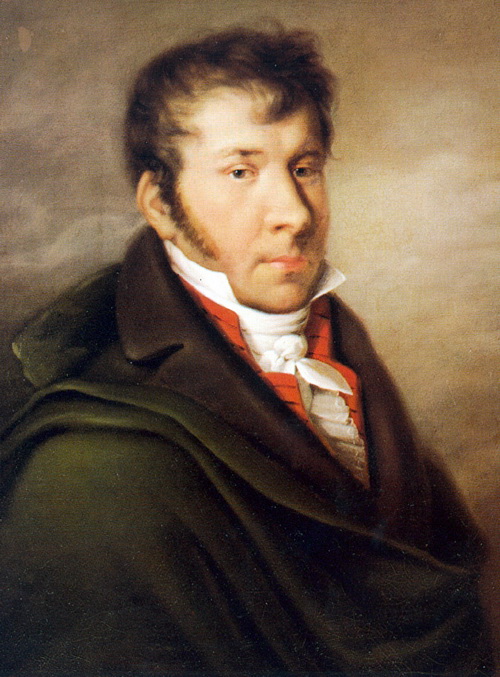
6. Johann Nepomuk Hummel (11/14/1778-1837)

7. Karl Czerny (02/21/1791-1857)
Austrian pianist and composer of Czech origin; was considered one of the best piano teachers in Vienna. Famous for creating huge amount etudes for piano.
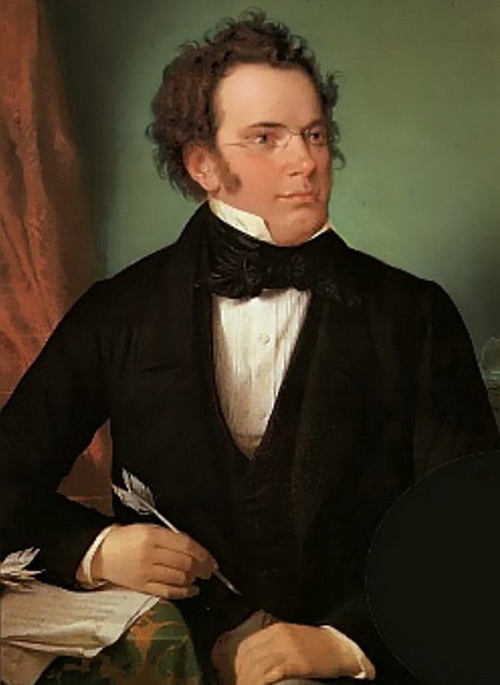
8. Franz Schubert (01/31/1797-1828)
Austrian composer, one of the founders of romanticism in music, author of about 600 vocal compositions (to words by Schiller, Goethe, Heine and others), nine symphonies, as well as large quantity chamber and solo piano music.
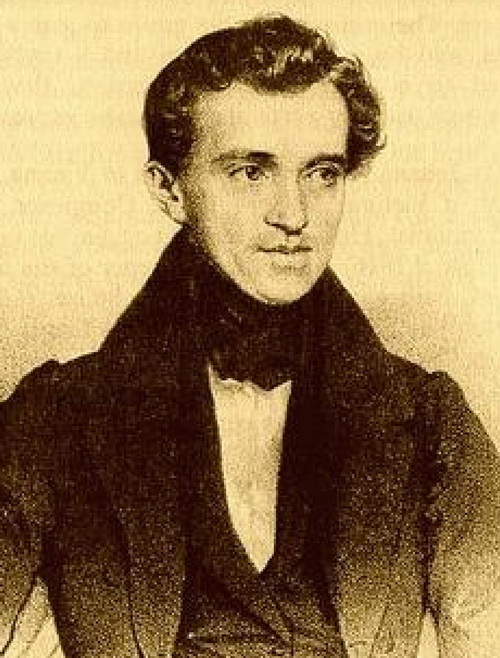
9. Johann Strauss father (03/14/1804-1849)
Austrian composer, violinist and conductor. The composer's legacy includes 251 works (of which 152 are waltzes). This legacy was carefully preserved by his son Johann Strauss Jr. and published
in 1889 in Leipzig.
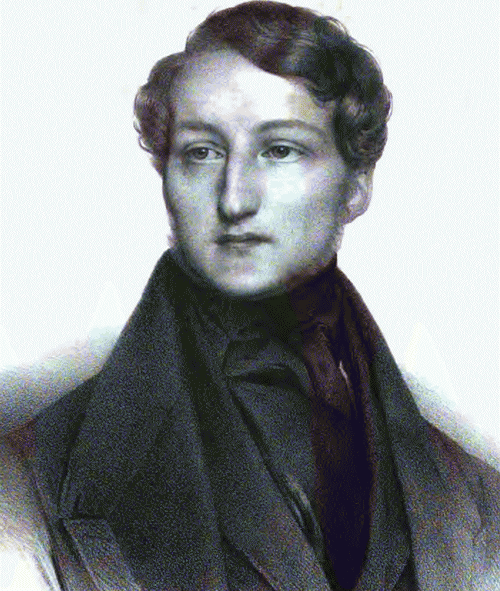
1 0. Sigismund Thalberg (7.01.1812-1871)
Austrian composer and virtuoso pianist.

11. Franz von Suppe (04/18/1819-1895)
Austrian composer and conductor. One of the creators of the Viennese operetta.
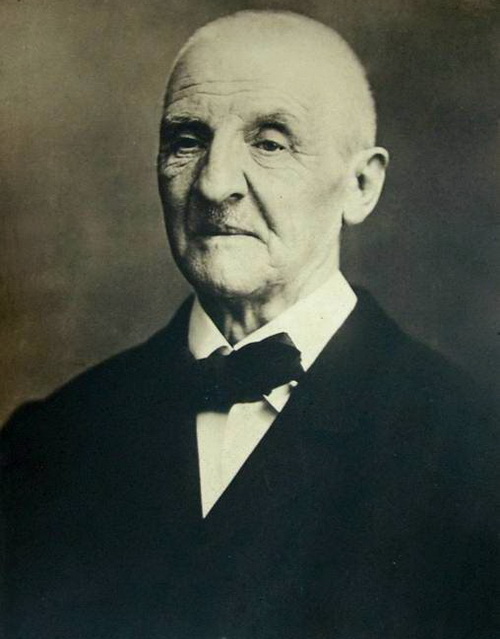
12. Anton Bruckner (4.09.1824-1896)
Austrian composer, organist and music teacher, known primarily for his symphonies, masses and motets. His symphonies are often considered symbolic final stage Austro-German romanticism due to its rich harmonic language, complex polyphony and significant duration.
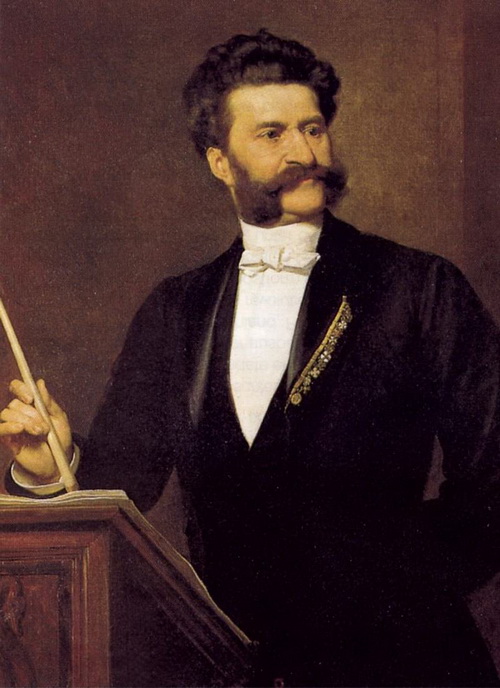
13. Johann Strauss son (11/25/1825-1899)
Austrian composer, conductor and violinist, recognized as the “king of the waltz”, author of numerous dance works
and several popular operettas.
 14. Karl Millecker (04/29/1842-1899)
14. Karl Millecker (04/29/1842-1899)
Austrian composer and conductor, author of popular operettas.
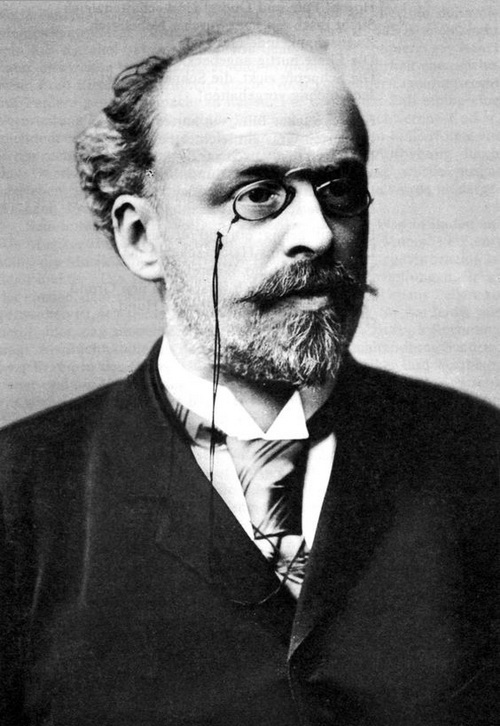
15. Karl Zeller (06/19/1842-1898)
Austrian composer, classic of Viennese operetta.
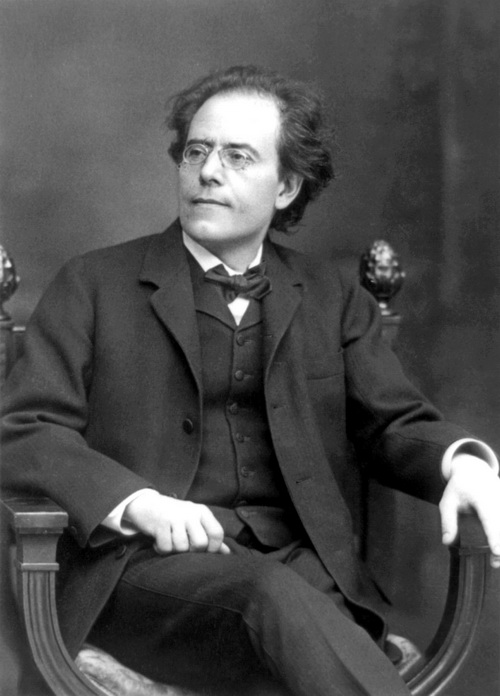
16. Gustav Mahler (07.07.1860-1911)







